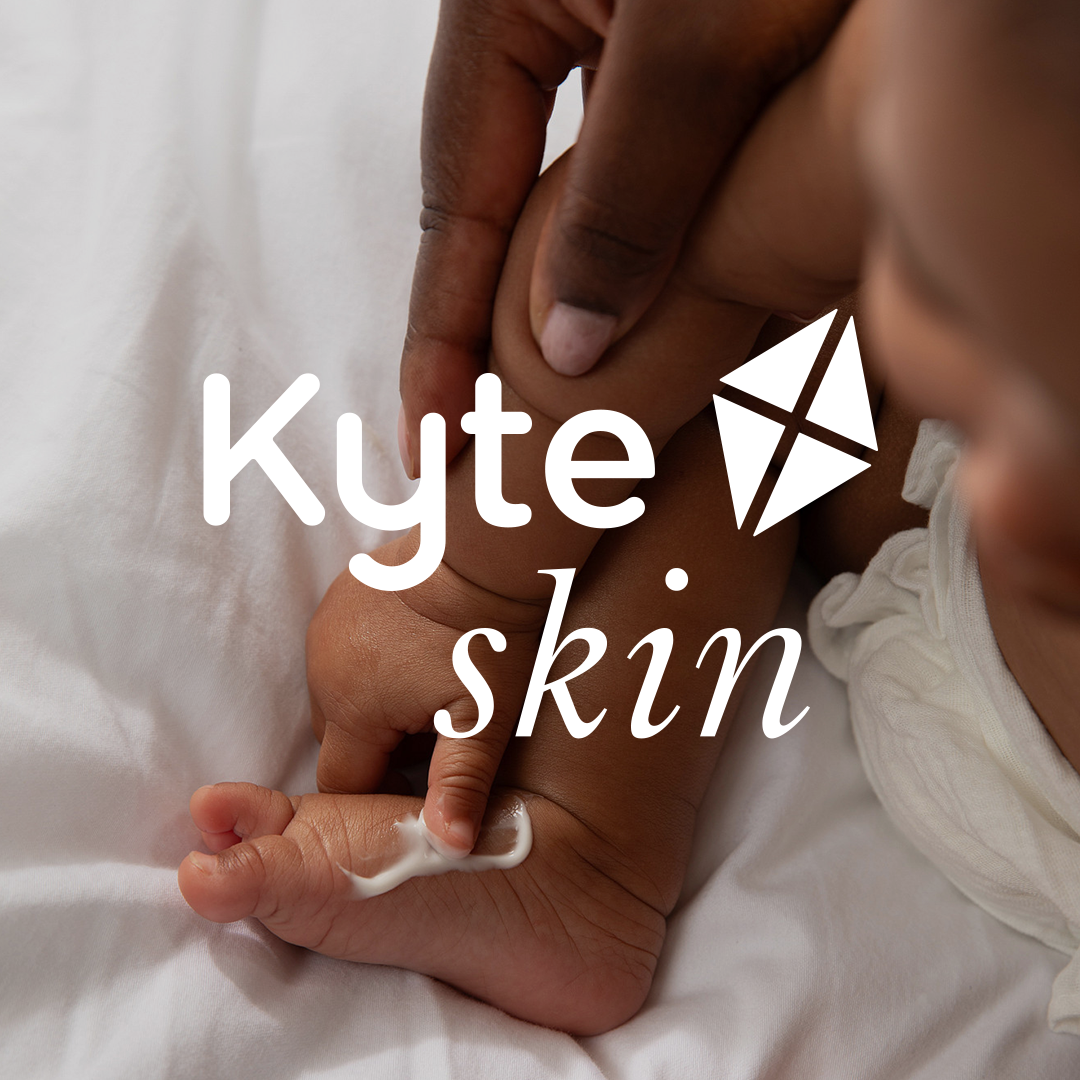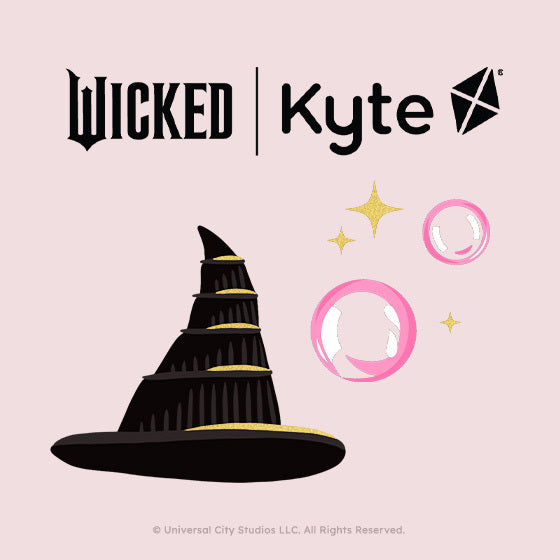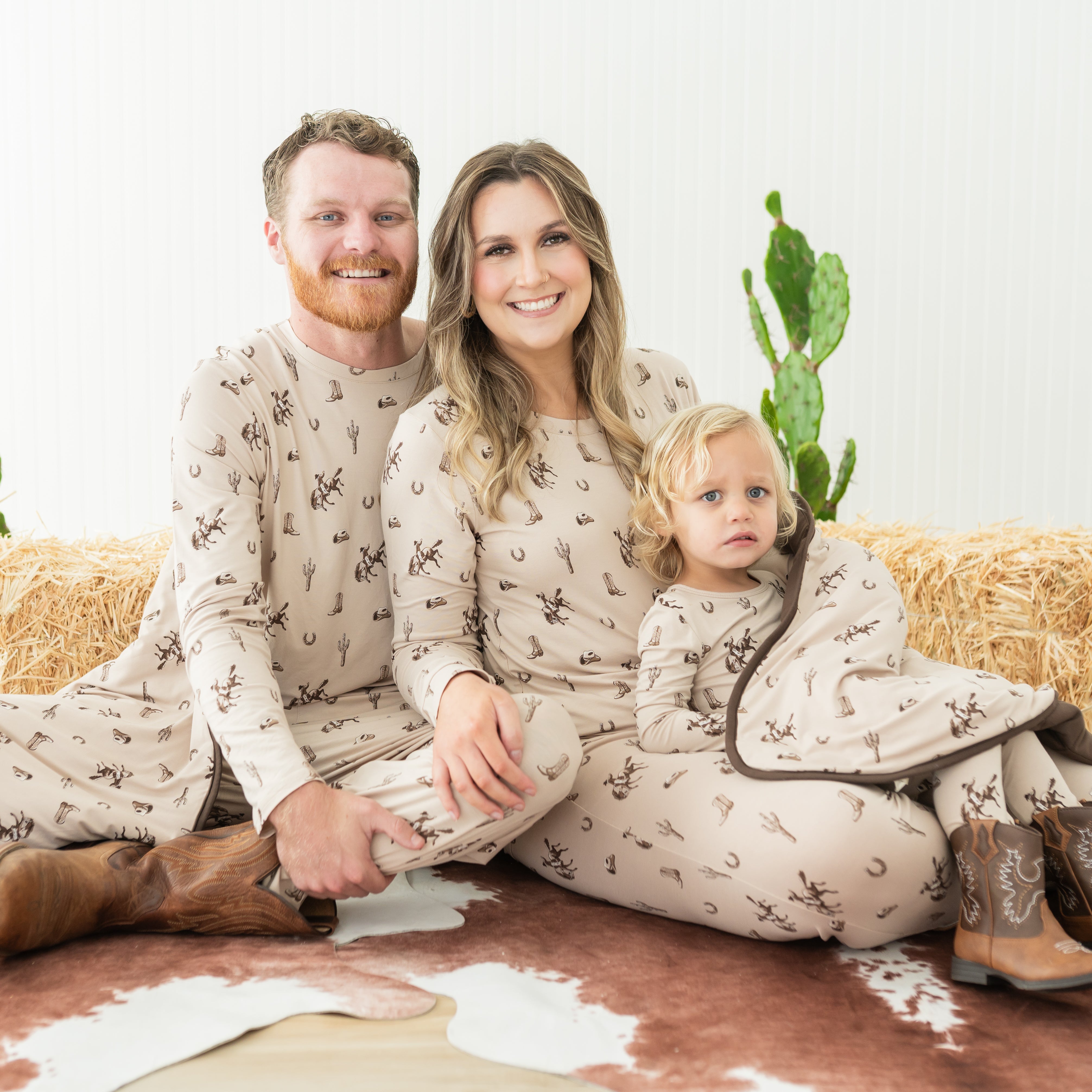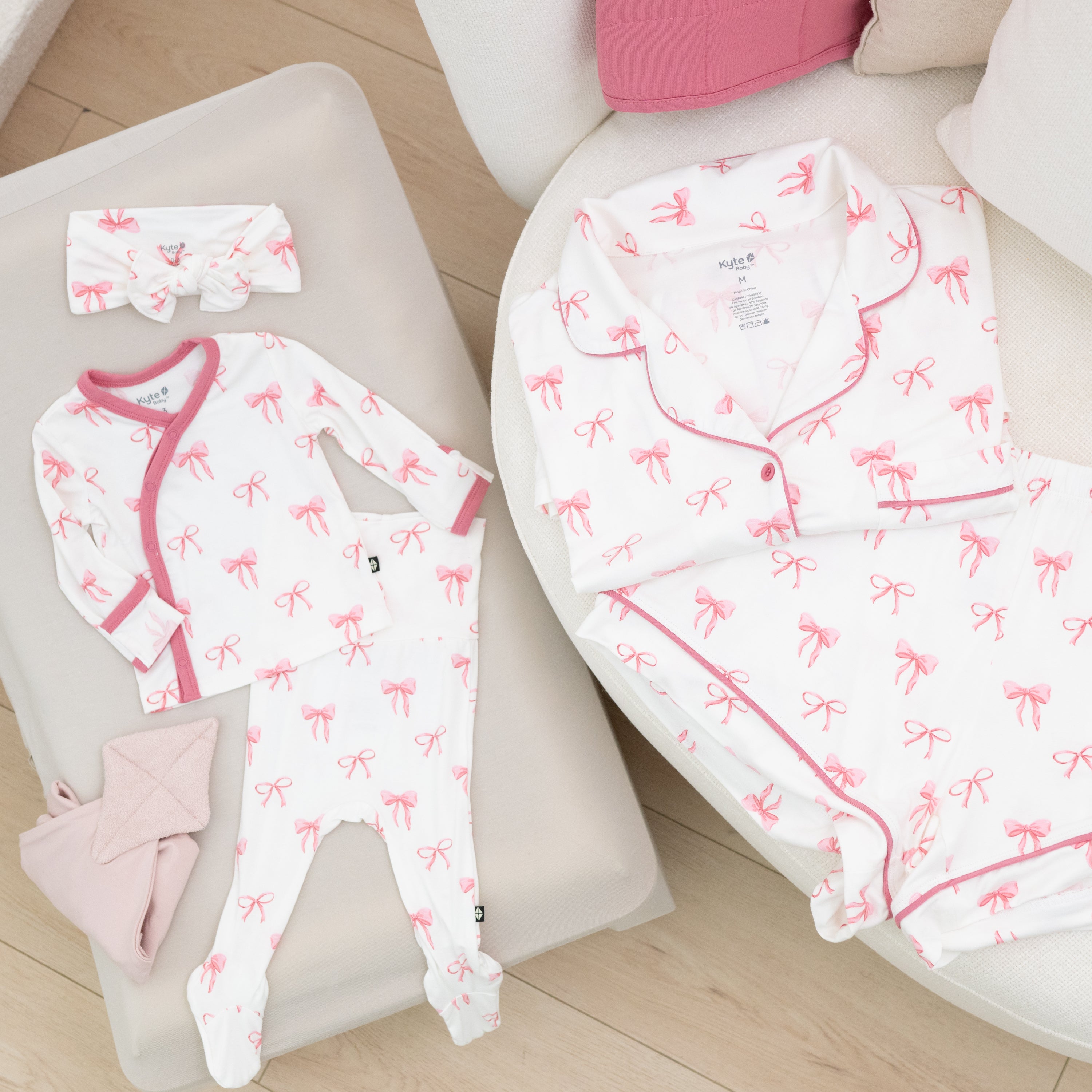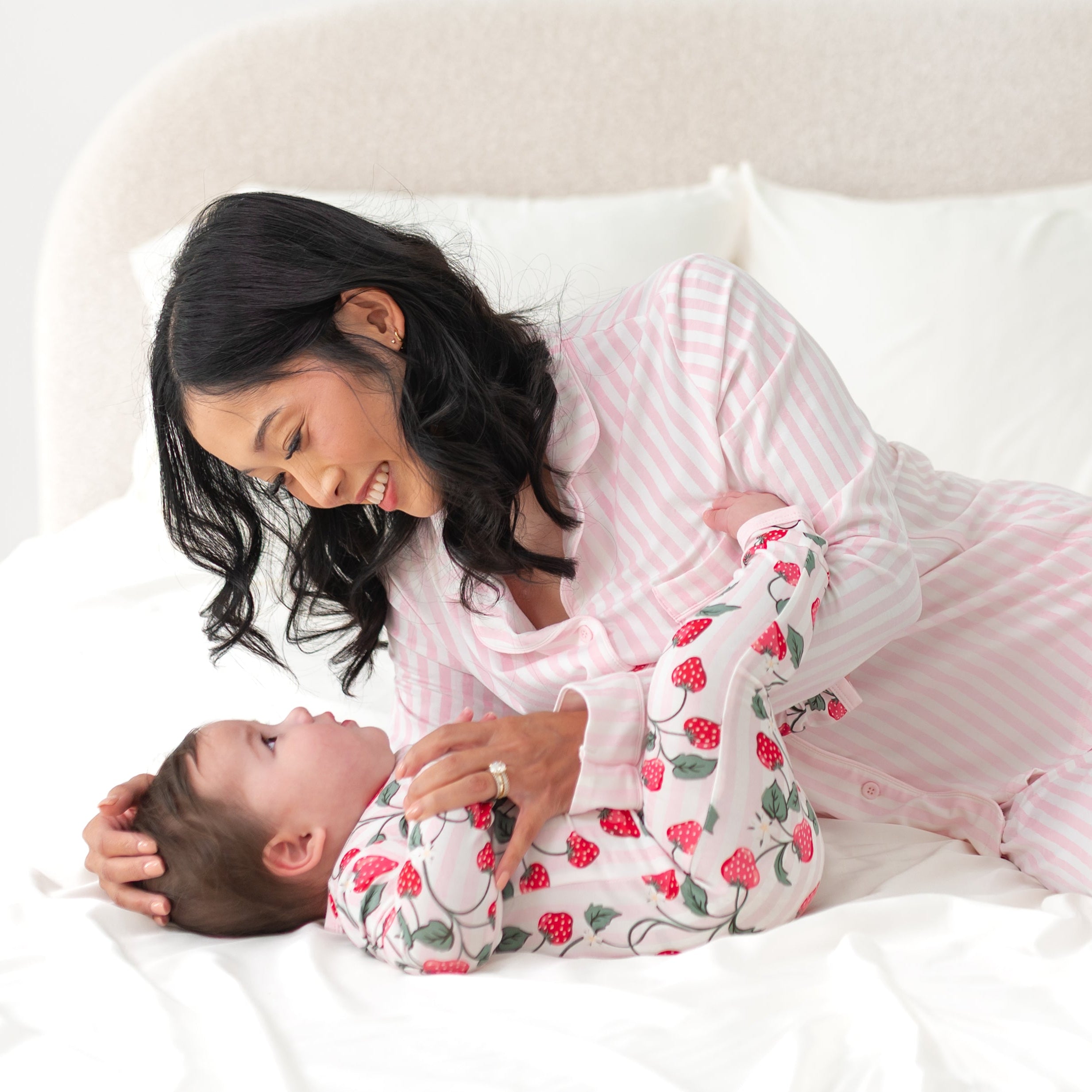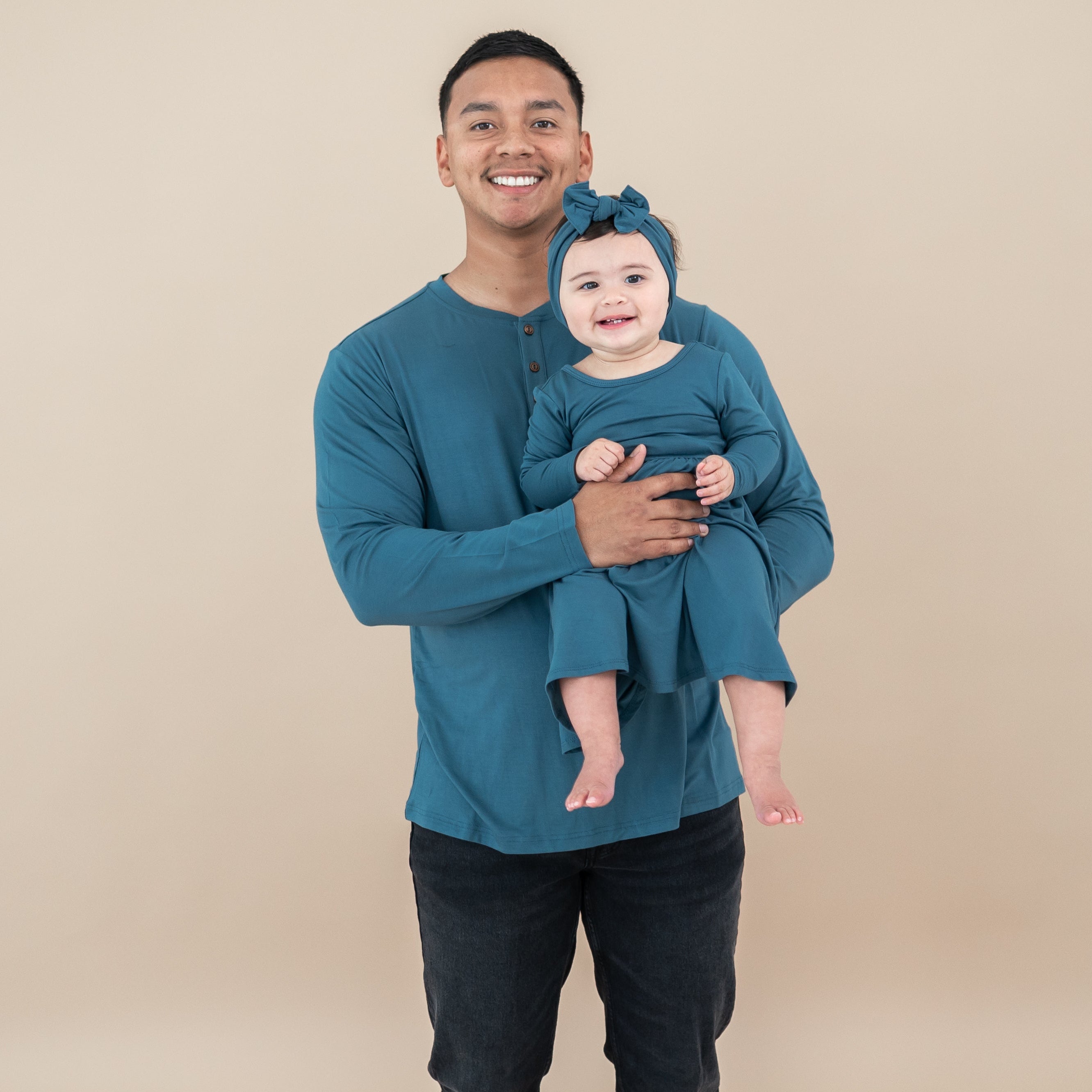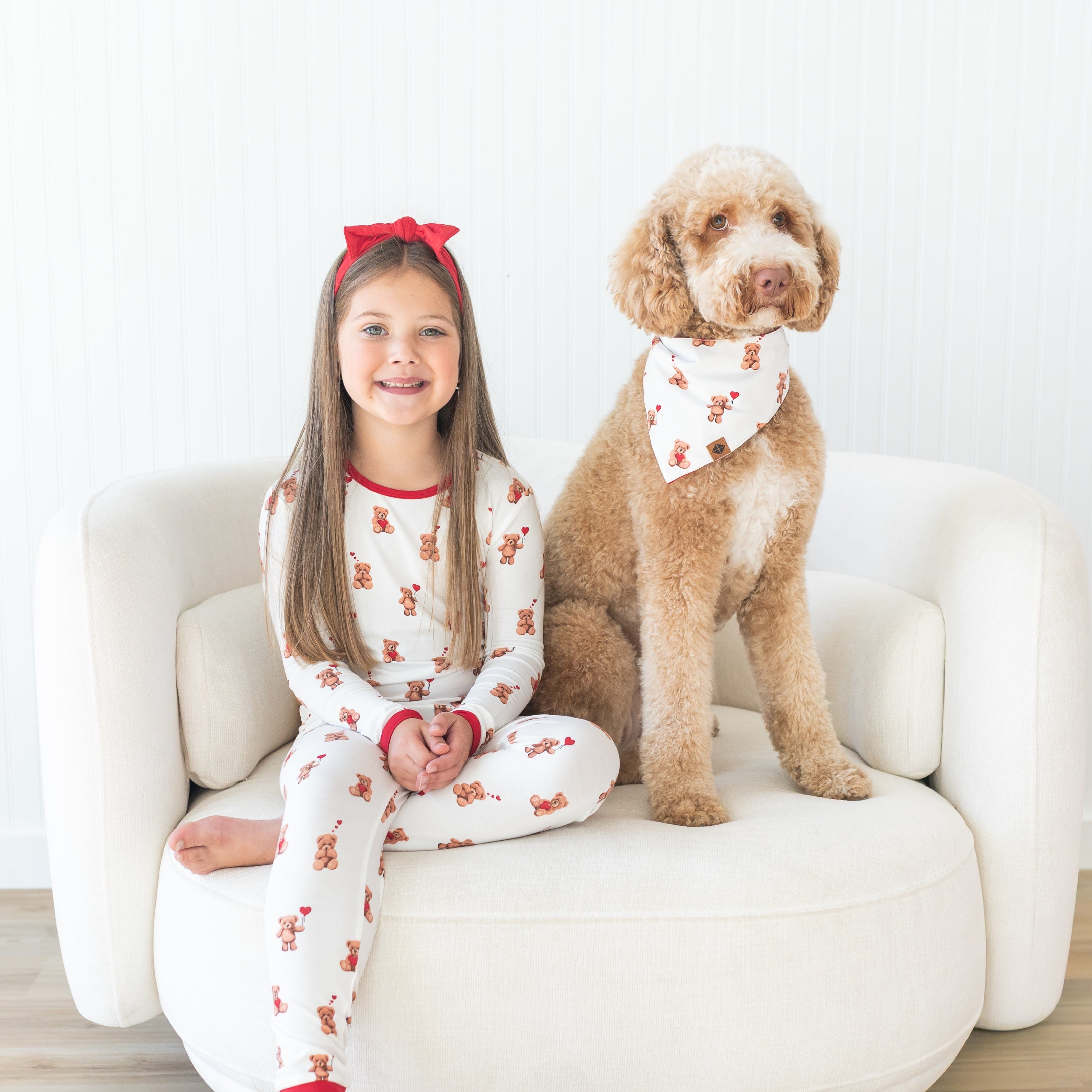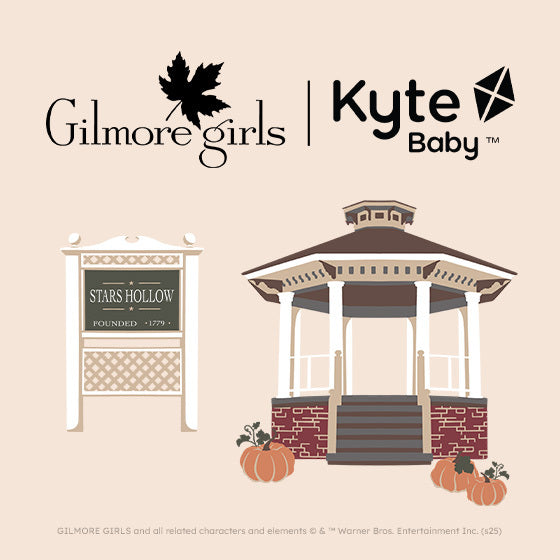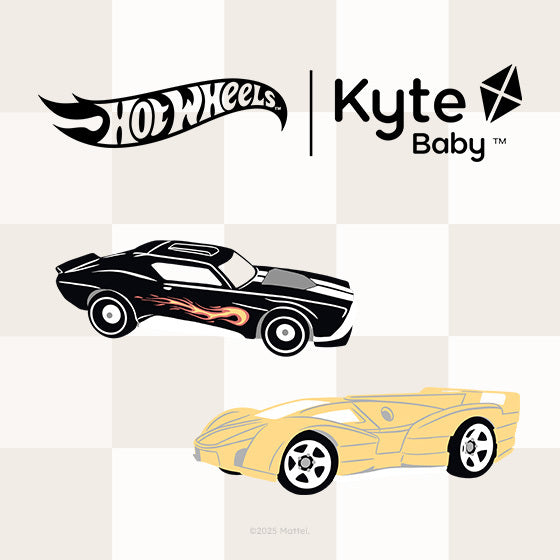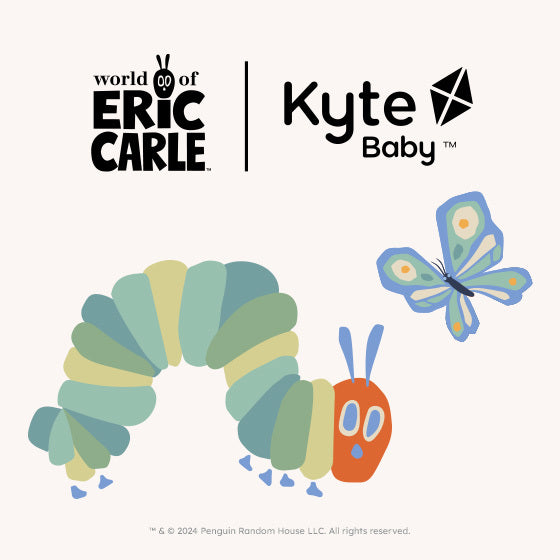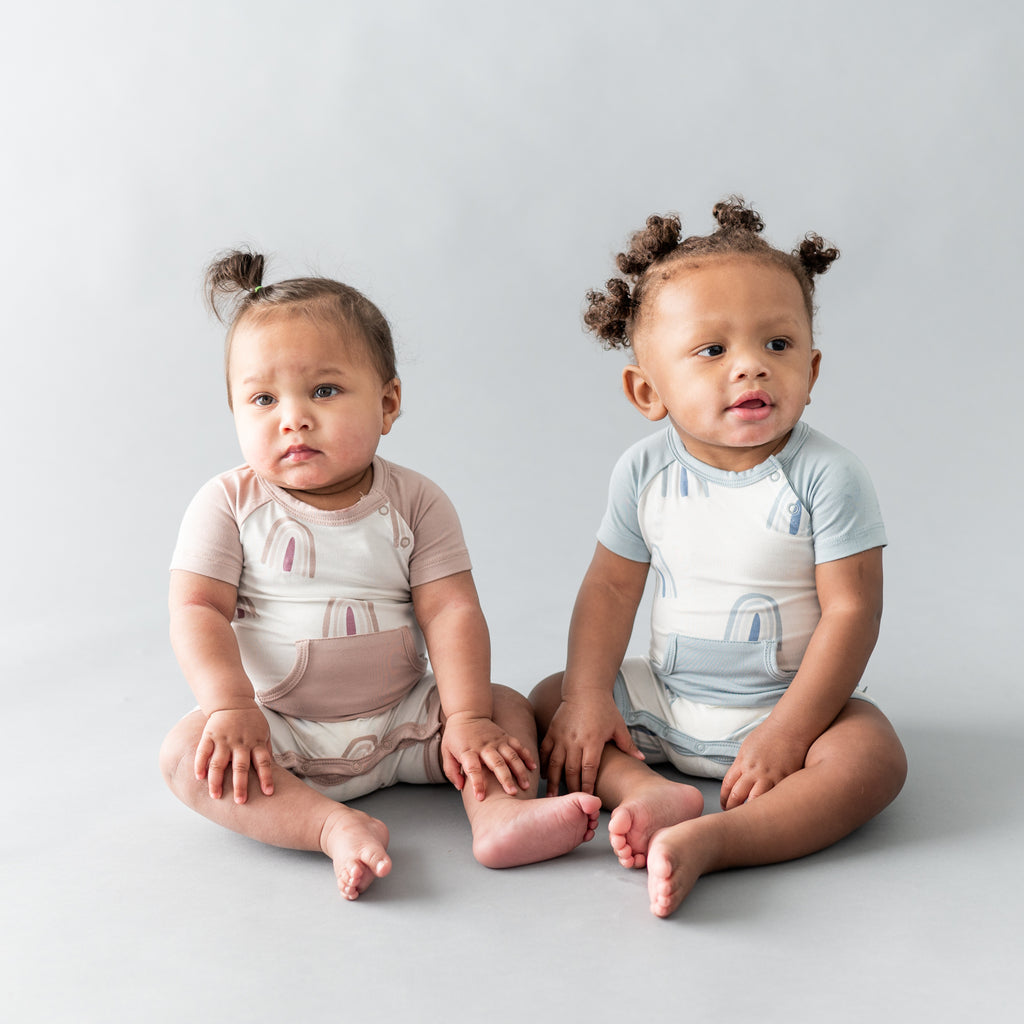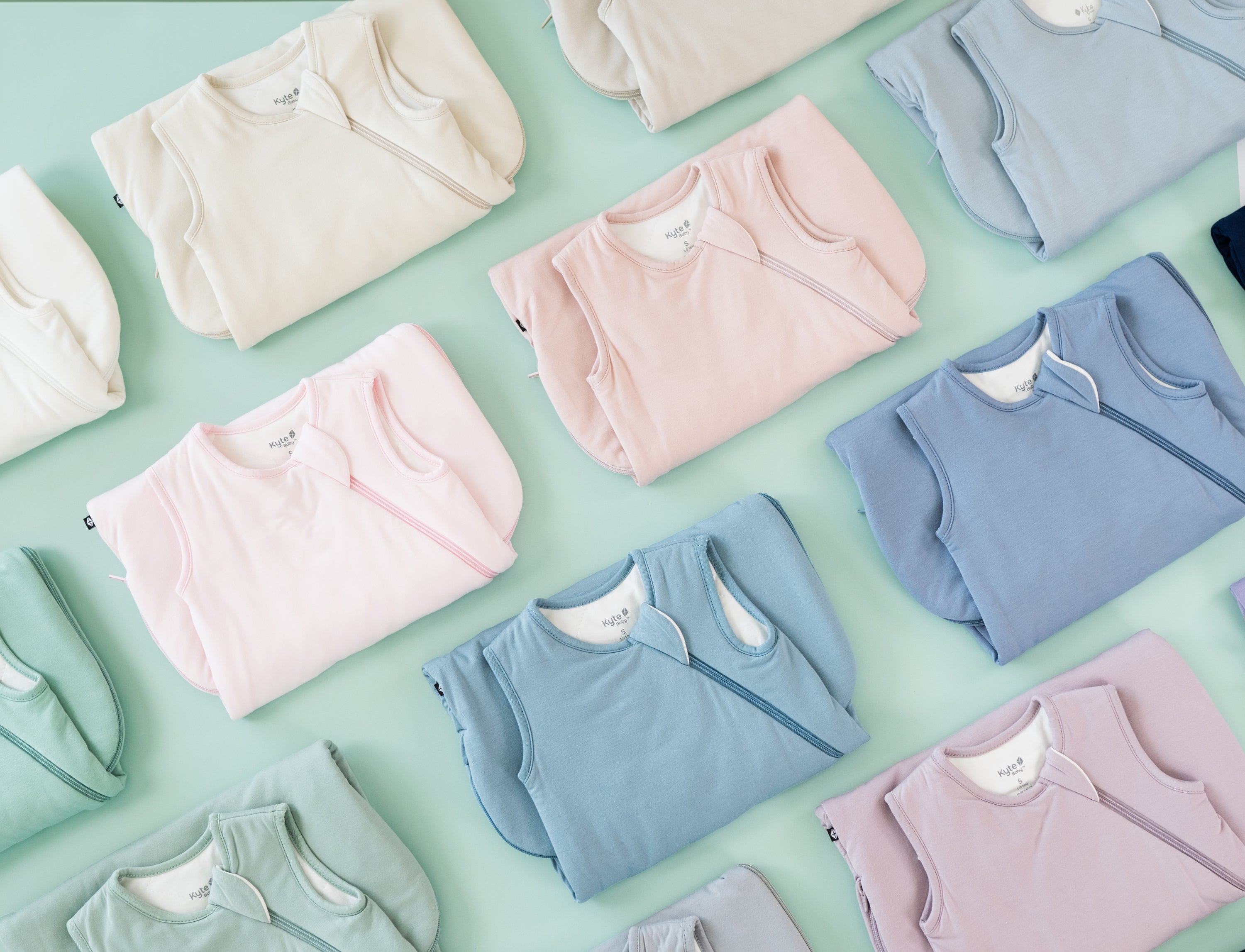February, to many, is the month of love. Heart-shaped decorations are seen everywhere in the weeks leading up to Valentine’s Day, but to those who are all-too familiar with congenital heart defects (CHD), they mean something different. February is American Heart Month, and February 7-14 is CHD Awareness week. Congenital heart defects are the most common type of birth defect, affecting nearly 1 in 100 babies in the United States each year. Babies with critical CHDs need surgery or treatment within their first year of life. Just let that sink in for a moment. A baby’s first year should be a time of great happiness and excitement, but CHD families also face ER visits, hospitalizations, medication, and surgery. A CHD is caused by the abnormal formation of the heart during growth in the womb, and in most cases, there is no known reason for it. To improve the lives of children and adults living with CHD, more awareness must be raised. More awareness leads to more research funding, which may someday bring an end to the devastation that CHD can cause.
In January, we did a special giveaway in honor of Birth Defect Awareness month. There were many nominations of deserving families whose children have a birth defect, and we were able to learn so many of your stories. Although there were only three winners chosen, we had the greatest honor of interviewing some of the families who entered the giveaway. They shared their stories and photos with us so that we could bring awareness to many different birth defects and the challenges that come with them. Among those nominations were several CHD families, and to commemorate Heart Month and bring awareness to CHD, we wanted to share their stories with you. These heart warriors, despite their young ages, have a lot to teach us about strength, resilience, hope, and gratitude.
HUDSON’S STORY
Written by his mother, Kaitlyn

Q: What type of CHD does your child have?
A: Shone’s Complex.
Q: When was your child first diagnosed?
A: At our 20-week anatomy scan.
Q: What were your first thoughts upon learning of your child’s diagnosis?
A: My heart just stopped. It was the worst day of my entire life. I wouldn’t wish that pain on anyone.
Q: What has been the most challenging part of your journey?
A: Having a baby with heart failure is insanely hard. We had to travel 17 hours one-way for a chance to save Hudson. We were inpatient for months out-of-state, with little help with our older kids. No income and just praying that we could keep him earth-side. I think the hardest part of our journey was watching compressions on him at birth and not knowing if that would be it. Hudson has a lot going on now and will likely be going for surgery soon. It’s never easy watching your child struggling, knowing you can’t do a single thing to make it better and that doctors and hospital trips will always be a “see you next time” sort of thing. It’s never-ending and I hate it so much.
Q: What is the best piece of advice you’ve been given?
A: Question everything and everyone. Be their voice and always trust your “mom gut.” Hudson wouldn’t be here today if we would’ve just went with what every doctor has told us. Get second, third, and fourth options. It could save their life.
Q: What do you wish people knew about you and/or your child?
A: That CHD doesn’t have a cure. He struggles every day to be here and I wish more [people] would bring awareness to CHD research. More children die from CHD every year than all childhood cancers combined.
Q: How can others best support a family going through a CHD diagnosis?
A: Check in often and just offer a listening ear. We’re so used to being called brave and getting sad looks, but some of us are barely hanging on and could just use someone to listen from time to time. Just to feel normal.

Q: What type of CHD does your child have?
A: Benjamin has Tetralogy of Fallot with an atrioventricular septal defect. He has had two open-heart surgeries and will have a third sometime later this year. His first surgery was at 7 months old and his second was shortly after he turned 2.
Q: When was your child first diagnosed?
A: When I was 11 weeks pregnant, we discovered, via some genetic testing, that Benjamin came back as high risk for having Down syndrome. We were given a level 2 ultrasound and received confirmation when I was 13 weeks pregnant. That was also when they were able to see some issues with his growing heart. At 32 weeks gestation, he was officially diagnosed with Tetralogy of Fallot.
Q: What were your first thoughts upon learning of your child’s diagnosis?
A: It’s absolutely crushing to hear the news that your child is going to be born with a CHD. I spent many weeks grieving the loss of a “normal” pregnancy. It was filled with countless questions, doctor’s appointments, and so much unknown. I didn’t know anyone who had walked down this path before and it felt so lonely. It wasn’t until I began to get involved in the Down syndrome and CHD communities that I realized I wasn’t alone, and that many other families had walked this path before us. Surrounding myself with people who knew how I was feeling and what I was going through was so comforting and brought me so much peace.
Q: What has been the most challenging part of your journey?
A: I think one of the most challenging parts of our journey has been trying to deal with the unknowns that come from having a child with a congenital heart defect that will never be truly fixed or repaired. Modern medicine has been amazing and saved our baby’s life, but he will always face issues that stem from CHD. As a medical parent, you are constantly wondering, “Is this normal? Is my baby okay? Should I be doing more for them? Will they need another surgery? What will this doctor’s appointment bring?” You find a strength inside you that you didn’t even know was there, and even when you don’t think it’s possible to make it through another day or another appointment, somehow, you do. Benjamin is our biggest blessing and I couldn’t imagine life without him. His drive and determination push me to be a better person every day. He makes it possible. He is my strength.
Q: What is the best piece of advice you’ve been given?
A: The best advice I got and I give to parents facing a new CHD diagnosis is to get involved in the community. Join support groups, reach out, and get connected. You feel so alone but you quickly learn you’re not. Heart families are amazing. [They are a] welcoming people so full of support and advice. It’s a family I never thought I’d be a part of, but it’s now one I can’t imagine my life without.
Q: What do you wish people knew about you and/or your child?
A: CHD doesn’t define Benjamin. He’s a smart, sassy, rambunctious 3-year old who has a heart defect. We will always face the challenges that come along with his heart defect, and that may affect how he does things, but we work very hard to always give him the opportunity and the chance to try. He played soccer this summer and is learning how to skate this winter! Give Benny a ball, and he’s in heaven.
Q: How can others best support a family going through a CHD diagnosis?
A: The best thing you can do for a family facing a CHD diagnosis is to just be there for them. Listen if they want to talk, let them cry if they need to. They may not know what they need but they need to know they are not alone.
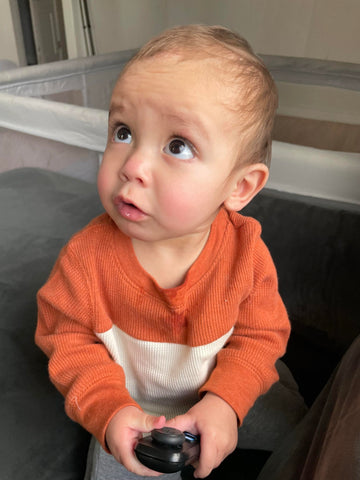
Q: What type of CHD does your child have?
A: Caspian has a few defects, but the largest was a coarctation of the aorta, which he had “repaired” at 5 days old. We now have to see if his heart develops normally.
Q: When was your child first diagnosed?
A: He was diagnosed two days after being born. We had no idea throughout my pregnancy, which came as a surprise.
Q: What were your first thoughts upon learning of your child’s diagnosis?
A: When me and my partner first heard the news, it was as if the whole world was coming crashing down. Since we didn’t expect this diagnosis, it hit us hard. Having to navigate your newborn going through heart surgery, as a new mom, is something you never expect to go through.
Q: What has been the most challenging part of your journey?
A: The most challenging part was going through heart surgery with a newborn in a different city. Since our city doesn’t have heart specialists, we were transferred to San Antonio, Texas, where we stayed the duration of his surgery and recovery. Having no immediate support system from family or friends was really difficult.
Q: What is the best piece of advice you’ve been given?
A: The best piece of advice I was given was from Caspian’s heart surgeon. She let me know that nothing I did caused the defect and that I couldn’t prevent it, so not to blame myself for it. This really helped me postpartum and through postpartum depression.
Q: What do you wish people knew about you and/or your child?
A: That having a CHD diagnosis does not mean he will not get to experience life as a “normal” kid. It just comes with a few more complications, but Caspian has developed as a normal baby otherwise. We have even traveled to 10 different places since he was born!
Q: How can others best support a family going through a CHD diagnosis?
A: The best way to support new parents and their baby who have been given a CHD diagnosis is to become educated on the condition and offer your full support to the family. I would also like other CHD parents to know that they are not alone, even though sometimes it feels that way!
ISLEY’S STORY
Written by her mother, Skylar
Q: What type of CHD does your child have?
A: She has a ventricular septal defect, which is a defect due to an abnormal connection between the lower chambers of the heart.
Q: When was your child first diagnosed?
A: She was diagnosed in May 2021, when she was three weeks old.
Q: What were your first thoughts upon learning of your child’s diagnosis?
A: I was scared of the unknown, but I was ready to learn more about her diagnosis and how I could help her.
Q: What has been the most challenging part of your journey?
A: The most challenging part of being a heart mom is definitely feeling out of control and not always sure of the outcome of everything.
Q: What is the best piece of advice you’ve been given?
A: The best advice I was given was not to compare my baby to other babies and to take one day at a time.
Q: What do you wish people knew about you and/or your child?
A: I want people to know that even though she has a heart defect, she is happy and thriving, and we pray for all the heart babies on their journey.
Q: How can others best support a family going through a CHD diagnosis?
A: The best way to help a heart family is to be there for them and offer help and support.
HANNAH’S STORY
Written by her mother, Elizabeth
Instagram: @seelizabether

Q: What type of CHD does your child have?
A: Hannah’s got hypoplastic left heart syndrome (HLHS for short). This is where the left side of her heart is underdeveloped, so her heart is unable to pump blood to the rest of her body.
Q: When was your child first diagnosed?
A: We found out at our 16-week anatomy scan that she had a heart defect, and then it was confirmed HLHS when we saw our fetal cardiologist the following week.
Q: What were your first thoughts upon learning of your child’s diagnosis?
A: Scared for what her life is going to be like in the future. Sad for the life she wasn’t going to have. Confused as to how this all happened. After a good weekend of full-on internet reading (worst thing to do, too), [I was] determined to give her the best life I could.
Q: What has been the most challenging part of your journey?
A: This is a tough one, but as a mom to two other boys, the mom-guilt of having to choose between being with them or staying with Hannah at the hospital.
Q: What is the best piece of advice you’ve been given?
A: Take it one moment at a time. This journey is like riding a roller coaster. It’ll have its highs and its lows, but take it one moment at a time. Don’t compare today to the day before.
Q: What do you wish people knew about you and/or your child?
A: I don’t know why, but this was the hardest question for me. I’m such an open book, especially about Hannah, that if anyone has any curiosities, I’m more than willing to share. I guess, if anything, I wish they knew that, deep down, I’m so ready to break and falter. I will do anything and everything for this little girl. But I wish people knew about the harder, heavier days. The reason why CHD awareness is so important is so that parents will not have to sit next to their baby’s bedside, praying she will just make it through the night or wonder if/when they can bring their baby home.
During these weird times, I wish and hope people know that we quarantine, we avoid people, that we are extremely germophobic for Hannah because a simple cold could put her right back in the ICU.
Q: How can others best support a family going through a CHD diagnosis?
A: Any support is amazing. Prayers. Being a listening ear. Financial support for gas, food, miscellaneous. Honestly, life with a heart warrior can feel quite lonely (at least for me), especially during these crazy times, so just being a listening ear when we need to vent is great.
CHARLIE’S STORY
Written by his mother, Cassandra
Instagram: @cabaja_bedouin

Q: What type of CHD does your child have?
A: Charlie was born with a hole in his heart between the two bottom chambers (or ventricles). This is called a VSD or ventricular septal defect. Charlie’s defect caused oxygenated and deoxygenated blood to mix between his ventricles, and because the right side of the heart has more pressure, it was sending too much blood into his lungs. His defect did not show up on any prenatal imaging. It turns out, this is not uncommon. He also did not have any markers of Down syndrome in his prenatal scans—he had a post-birth diagnosis. The doctors began to pay closer attention to his heart once they discovered a murmur in October of 2021. We were told that the surgery to correct (or repair) the hole in his heart would be necessary. In fact, according to Conquering CHD, approximately 25% of CHD patients will need surgery or other interventions in the first year of life to survive. This is heavy news but we found comforting information and empowerment from groups/pages such as Conquering CHD, Mended Little Hearts, and the DSDN (Down syndrome diagnosis network).
Q: When was your child first diagnosed?
A: After Charlie was flagged because of his murmur, we received a referral for a cardiology appointment. The cardiac specialist appointment was not until April 1st and Charlie began having difficulty breathing. His pediatrician wanted an echocardiogram done as soon as possible, so he sent us to Rady Children’s Hospital in San Diego. We were admitted through the emergency room and he was hospitalized for 3.5 days. He had symptoms of pulmonary edema, which is a condition caused by too much fluid in the lungs. The access blood collecting in the lungs caused Charlie’s heart to work overtime to make up for this imbalance. In an infant, beginning symptoms can be tricky to spot, but the red flag for our pediatrician was the deep chest retractions under his ribs with each inhale. Charlie’s struggle to breathe was most evident through his feeding habits.
The surgery to correct this defect is very common now, and, once healed, Charlie will be back on the road to being a happy, healthy baby. We count ourselves extremely lucky to have sought and received care for Charlie at Rady Children’s Hospital, San Diego. They had a team of dedicated medical professionals—cardiac surgeons, cardiologists, endocrinologists, nurse practitioners, clinical nurses, radiology technicians, respiratory therapists, speech therapists, dietitians, physical and occupational therapists. We hope that places like Rady Children’s Hospital continue to provide life-saving procedures to children like Charlie. Advances in science and medicine over the past few decades mean that children with CHDs now have the opportunity to survive their first year of life and move on to thrive!
Q: What were your first thoughts upon learning of your child’s diagnosis?
A: When our doctors told us Charlie had Down syndrome (or Trisomy 21 [aka T21]), I began purchasing books and learning everything I could about raising a baby with Down syndrome. It turns out that congenital heart defects (CHDs) are very common in children with Down syndrome - about half of babies diagnosed with T21 have some sort of congenital heart defect. As I read about the coexisting conditions that often come with Charlie’s diagnosis, I began to square in my mind the possibility of Charlie possibly having one or more coexisting conditions. So, I was prepared for the CHD diagnosis.
It is important to note that Down syndrome is a condition caused by a genetic anomaly (an error during cell division) and not a disorder or birth defect. The WHO (World Health Organization) recently (wrongly) released a statement indicating that Down syndrome is a birth defect that can be treated or prevented. Parents in the Down syndrome community (and Moms specifically) face a lot of stigma around the causes of our children's conditions. The truth is that there is not any amount of prenatal care or testing that can prevent Down syndrome. With 47 chromosomes, we consider our children extra special and even more unique! We appreciate positivity and curiosity over assumptions. World Down Syndrome Day is March 21st. Perfect timing—right after Heart Month, and another great opportunity to spread awareness and positivity about Down Syndrome!
Q: What has been the most challenging part of your journey?
A: The challenges are honestly numerous. The anxiety building up as the surgery approached was unbearable. I think I aged 10 years from the stress! The hardest thing about his hospital recovery was days and days of not being able to hold our little baby. Pre-surgery, Charlie had a bedtime routine that included lying face down and bouncing on my chest, a hearty butt pat, and me making a shushing sound until he fell asleep. It was a huge change putting him to sleep in a hospital bed where only a few of his body parts could be touched. The cords, wires, tubes and drains made it extremely difficult and pretty scary to hold him.
Charlie actually learned to soothe himself to sleep in the hospital and we often found him hanging onto the edge of his blanket, pulling the fabric up and down over his face. The good news is that he now falls asleep by himself—but we still get our cuddles in! When I think about what he went through, I am in awe of his strength and resilience. Now that he is home and recovering, our challenge is ensuring we don’t put any pressure on his sternum or lift him under his arms, so we will be ‘scooping’ him for the next 6-8 weeks.
Q: What is the best piece of advice you’ve been given?
A: I was gifted words of encouragement from many family members and friends. Things like, “It’s okay to be scared” really hit home and helped me process my fears and feelings going into Charlie’s surgery. The best piece of advice came from a fellow IG/T21/heart warrior momma—Melanie Droubay. I do not know her personally, but we connected when I saw her son Hudson popping up in my feed. Sometimes Charlie and I sit together and watch Hudson’s stories. His smile lights up the room!
I reached out to Melanie and told her about Charlie’s upcoming surgery. Her kindly offered advice was, “Just know that it will be hard, no matter what. And you might, at times, feel like you aren’t strong enough, that you can’t do it. But you CAN do it. And you will do it. For Charlie. Because you love him and want what’s best for him.” Handing my little baby over to a surgical nurse to be carried away for his surgery was probably the most difficult thing I’ve yet had to do since Charlie was born, but I remembered Melanie’s words and powered through.
Q: What do you wish people knew about you and/or your child?
A: Children like Charlie with Down syndrome and CHD have some medical complexities, but they are more like their typically developing peers than not. He works harder to meet his developmental milestones (especially gross motor skills), but he is just as capable of doing things that typically developing babies do. All too often, this diagnosis is met with negative expectations and responses—or people don’t know how to react, so they say things like, “I’m so sorry.”
The negative stigma surrounding Down syndrome is due to a few things: a) historically, a lack of understanding and exposure to people with DS [it was not too long ago that children with DS were institutionalized and seen as incapable of living ‘typical’ lives], b) a societal perception of a disability being a negative [it’s inherent in our language—‘dis’ability. I prefer ‘differently abled’] c) the approach to disorders within the medical community [people with differences need to be fixed—rather than society needs to be fixed to include those who are different], and d) the normalization of genetic testing with the subsequent termination of pregnancies where the fetus is found to have a genetic disorder.
Everyone has their preference and approach to disability but the number one takeaway here is that words matter, and that most parents prefer other folks to use people-first language when talking about their children. They are people first and not just their diagnoses. So calling Charlie ‘a baby with Down syndrome / CHD’ is much preferred to ‘a Down syndrome baby.’ *Cringe* Although there are challenges associated with the condition of Down syndrome, Charlie has been perfect to us from the beginning—this diagnosis does not change that. His CHD was a difficulty we had to help him overcome, but no matter the challenges, we still consider ourselves part of the lucky few!
Q: How can others best support a family going through a CHD diagnosis?
A: Along with encouragement, we had many friends and family members help us out with donations. We are in San Diego for his surgery and recovery, so being away from home and being engulfed in an extremely stressful process was way too much to handle at times. The donations provided via our GoFundMe campaign helped buy us groceries and takeout for the times when we were too exhausted to think about cooking. Others sent us money directly for groceries or support towards our housing. We also had local friends who did a Target run for us, picked up some packages, dropped off food to us, and sent us meals via Doordash/Postmates. One friend even kept my cooler full of frozen breastmilk when we were between hotels/Airbnbs.
I found that, during this journey, I would be so hyper-focused and worried about Charlie that doing other things became very difficult. This was especially true during his stay in the hospital. Folks with whom I work have been nothing less than supportive and understanding—that has honestly meant a lot because I know I haven’t been operating at 100%, but the events of the past few weeks made maintaining meetings and grading nearly impossible. I’d characterize the past month as a whirlwind of fear, uncertainty, and stress, but it was less stressful because we didn’t have to think about the extra things like eating or going shopping for basic needs. We were completely amazed and so grateful for all of the support provided to us. It feels very good to be held with such care by your friends and community.

